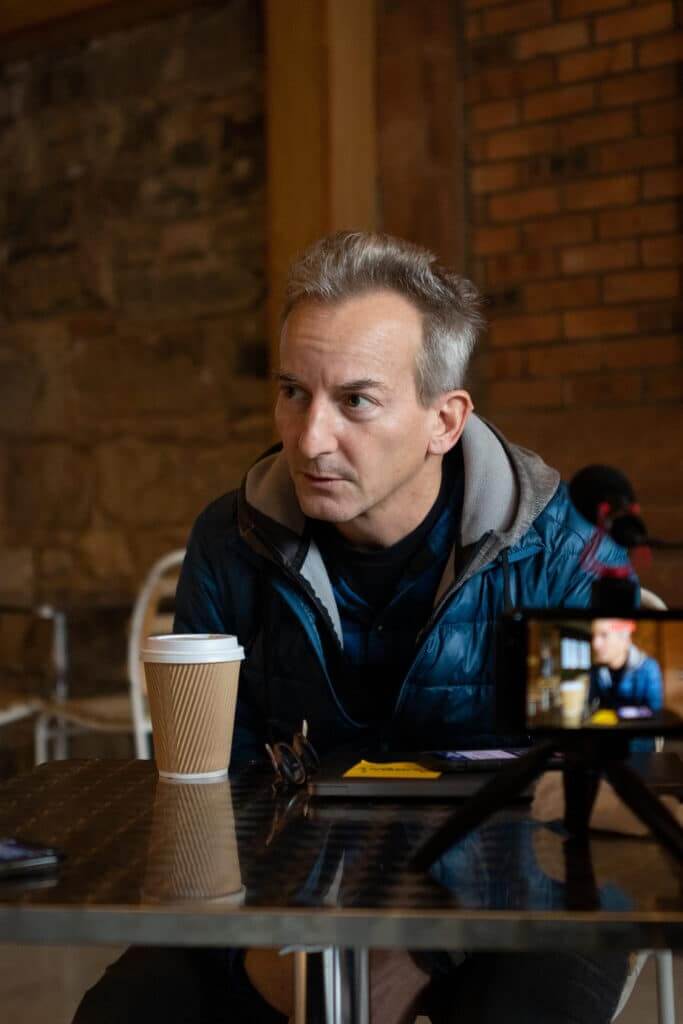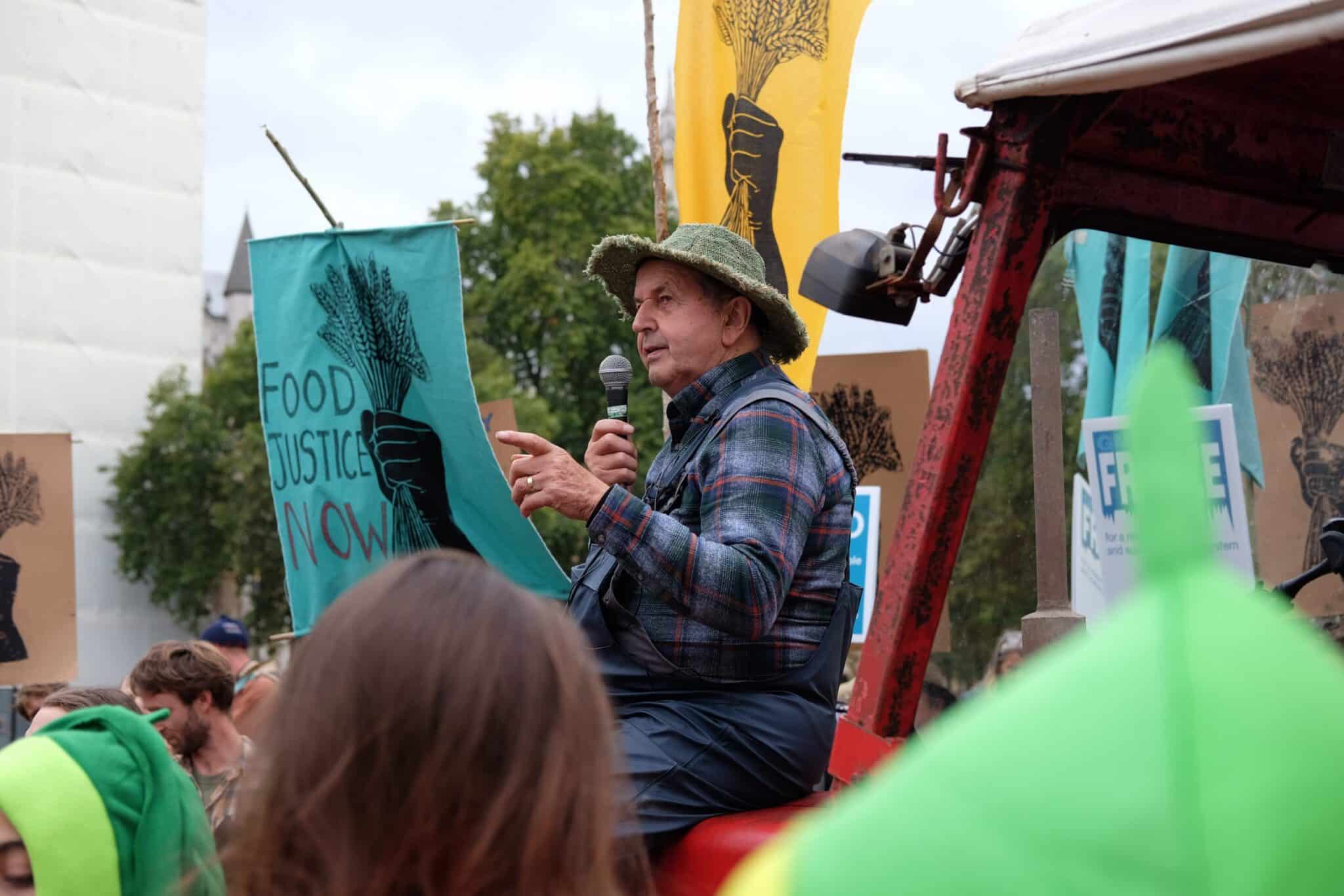“If you want to tell people the truth, you had better make them laugh, otherwise they’ll kill you,” said poet and playwright Oscar Wilde.
This could not feel more relevant to the climate crisis, where activism certainly feels like an uphill and truthful battle. As Extinction Rebellion (XR) recently announced a shift away from public disruption tactics, is it time to make activism more fun?
There’s no disputing the impact of XR – not even a week after their Easter protests in 2019, parliament announced a climate emergency.
But as the group’s new aim is “to prioritise attendance over arrest and relationships over roadblocks”, perhaps there is a sense that disorder is alienating people. That, or perhaps a reputation, rightly or wrongly, for being worthy or ‘do-gooder’ is putting people off climate change activism at a time when we need it most.
“No one likes to be talked down to,” explains US comedian and climate change activist Andrew Boyd. “But when you think something is so important, you can sort of not realise that you’re a bit full of yourself and a bit preachy, in the sense of urgency and directness of the situation.”
But activism hasn’t always been locking yourself to buildings or blocking motorways.
Farmer and GM activist Gerald Miles recounts how campaigners used a deliberately creative approach to protest the then Labour government’s stance on GM crops in the early 2000s – something he thinks is currently lacking.
“They welded a chain harrow on the back of a Land Rover and dressed up like Tony Blair with masks and destroyed the [GM] trial crop,” says Miles, who at 74 is still active in the sustainable food movement, driving his tractor to lead a march in London last year.
“The headlines were ‘Tony Blair destroys GM crops’,” he smiles, recalling the sense of fun behind the campaign.
“In Devon, activists dressed up as chickens. They went in the [trial] field, picked up the seed, replaced it with organic seed and as they were picking it up, they would drop dead,” says Miles, who believes that the theatre behind this activism was key in gaining media attention and public support.

Gene modification, in its new guise as gene editing, is back in the news these days, but while there are dedicated efforts in lobbying and PR, activism of Miles’ type, has yet to be seen.
Activism at the grassroots, says former monk Satish Kumar, has a vital place in the process of change; bringing issues to the fore, and putting pressure on politicians. “Do not expect change to come from Number 10, it comes from the grassroots, from people like Gandhi, Mandela, [Eve] Balfour and [Vandana] Shiva,” said Kumar, in a his opening plenary at the Oxford Real Farming Conference earlier this month.
At any rate, it’s clear we need different ways of communicating the various environmental crises facing the world. The constant stream of negative, doom-predicting headlines is too often paralysing rather than empowering.
But while humour and satire can be used to great effect, it’s been hard to apply to the climate crisis, according to Boyd.
“Partly because it’s this amorphous, non-personified enemy,” he says. “It’s not exactly Elon Musk or George Bush.”
Step in the star-studded cast of Don’t Look Up and the world-ending comet hurtling towards earth as a metaphor for the climate crisis. It satirised the media’s derision towards the desperate pleas of scientists, laughing them off as mad conspiratorialists while tech giants proposed outlandish silver bullet solutions. Sound familiar?
Satire, humour and entertainment allow us the space to reflect on the absurdity of our circumstances, something that, as he outlines in his new book I want a better catastrophe, Boyd says could be a powerful lever for change.

“It can be inspiring, it’s like a David versus Goliath thing,” he says, explaining that it can be a way of ‘punching up’ against those stronger than us.
An example is the recent Twitter exchange between Greta Thunberg and kickboxer and social media personality Andrew Tate who was boasting about the emissions of his supercar collection.
“This self-acknowledged misogynist, with more undeserved toxic swagger than anyone else, and he’s taken down by this young, un-egotistical activist – we didn’t expect it either. It was brilliant on so many levels,” says Boyd.
These small acts can make a movement more inclusive by inviting people in, rather than talking down to them.
“If it’s funny, you’re showing that you’re not an environmental robot and you’re human,” says Boyd.
It’s that ability to connect with people on an emotional level, beyond rational arguments and figures, that is so important to recognise when trying to create social change.
Ultimately, activism, whether it’s protesting or piss-taking, is about feeling the power as a collective rather than sheer sacrifice.
As Boyd puts it: “If you’re able to laugh, you’re turning from a victim to an actor who has hope and power in face of it all.”
Acting the fool: Three ways to capture attention and fuel change
No more down for Duck’s Sake
Clothing brand Fat Face’s campaign, including a pun and a parade with a mascot duck, successfully raised awareness of the animal welfare issues around plucking live duck down.
‘I should be in jail’
Founder of chocolate brand Tony’s Chocolonely, Teun van de Keuken, got himself arrested for eating 15 chocolate bars on camera, claiming that meant he had financed child labour. The trial lasted two years, and the judge ruled he couldn’t convict him, because all chocolate eaters would have to go to jail. But the issue of child slavery in the cocoa industry was firmly established.
Bend it like Lycett
Comedian Joe Lycett is arguably the greatest modern proponent of comic activism. In his latest stunt, he gained millions of views for shredding £10k live on camera to protest David Beckham’s endorsement of Qatar and the country’s poor record on LGBTQ rights.










There is a track by Fun Lovin’ Criminals called ‘The View Belongs To Everyone’, which I believe sums up our need to tackle landowners about access. It would make a good placard at rallies.